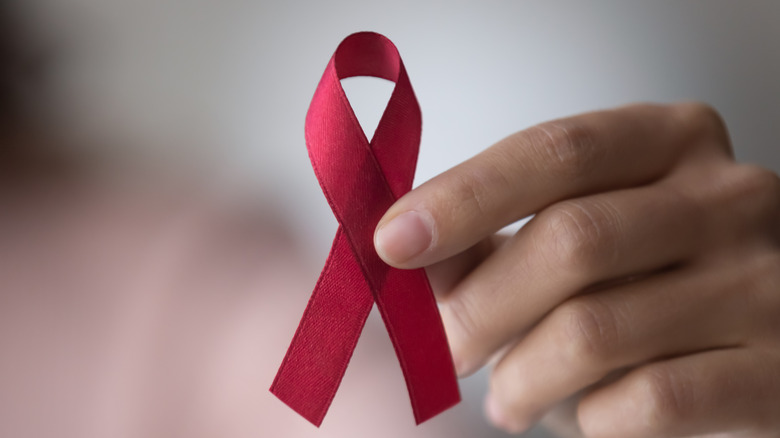What Does It Mean If You Have HIV But Are Undetectable?
Human immunodeficiency virus (HIV) is a virus that attacks the body's immune system by killing and damaging cells that help the body fight off infection. If left untreated, HIV can lead to acquired immunodeficiency syndrome (AIDS), which is the final stage of HIV infection (via the Cleveland Clinic). Fortunately, however, HIV is treatable and manageable and does not always have to lead to AIDS. While there is no cure for the virus, people with HIV can still live long and healthy lives with strict adherence to antiretroviral therapy (ART).
In fact, receiving an early diagnosis and getting early treatment can significantly reduce your viral load and lessen the virus's impact on your immune system. That's why it's important to get tested regularly, especially if you engage in activities that involve the exchange of certain bodily fluids, like blood, semen, vaginal and anal fluids, and breast milk. This means that the virus can be transmitted by entering the bloodstream through the linings in your mouth, anus, sex organs, and even through broken skin. For instance, you can get HIV by sharing needles, having unprotected sex with someone infected with the virus, having sex with multiple partners, breastfeeding, and needle pricks.
Being undetectable means you can't transmit HIV
If you get tested and find out that you're HIV-positive, the best course of action is to start ART right away, at the direction of your doctor. According to Healthline, early diagnosis and treatment are crucial to managing the virus and keeping your viral count low. This can also help stop the spread of HIV. That's because having an undetectable viral load means that there is effectively no risk of transmitting the virus to an HIV-negative partner through sex. In fact, multiple studies have shown that couples with an HIV-positive partner experienced zero transmissions of HIV to their HIV-negative partner through unprotected sex after taking ART for 6 months.
Eric Sawyer, the vice president of public affairs and policy at Gay Men's Health Crisis (GMHC), told Healthline that this technique is known as treatment as prevention. While physicians have known for some time that this is the best way to protect the health and safety of both HIV-positive people and their HIV-negative partners, it is only recently that the Centers for Disease Control and Prevention (CDC) have formally acknowledged that being undetectable means that you cannot transmit HIV. "The CDC endorsement of U=U might help further convince newly diagnosed patients to follow this method, which would help us bring down overall incidence of HIV infection," Sawyer told Healthline.


